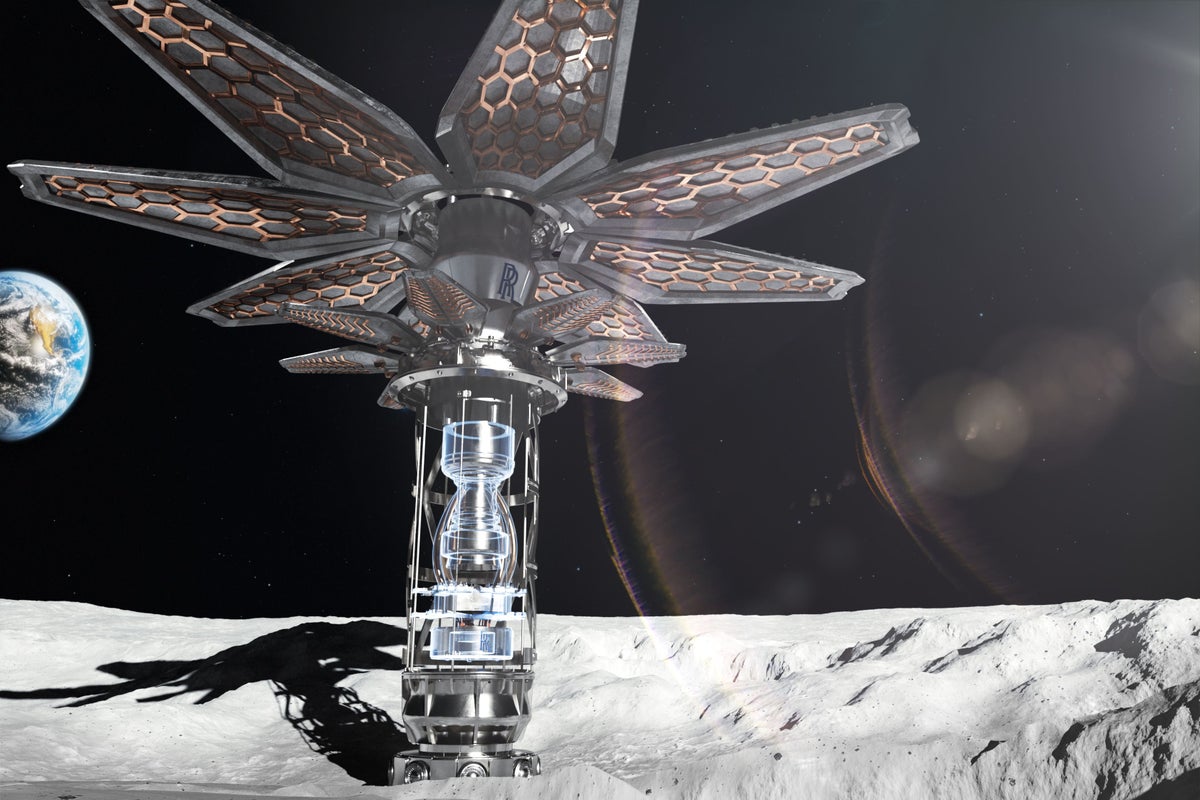For free real time breaking news alerts sent straight to your inbox sign up to our breaking news emails
Sign up to our free breaking news emails
Rolls-Royce has received funding from the UK Space Agency to develop a nuclear reactor for a Moon base.
The project will look into how nuclear power could be used to support a future base on the Moon for astronauts.
Scientists and engineers at the British company are working on the Micro-Reactor programme to develop technology that will provide power needed for humans to live and work on Earth’s natural satellite.
All space missions depend on a power source, to support systems for communications, life-support and science experiments.
Experts suggest nuclear power could potentially dramatically increase the length of lunar missions.
Recommended
- Charity boss speaks out over ‘traumatic’ encounter with royal aide
- Ukraine war’s heaviest fight rages in east – follow live
Space exploration is the ultimate laboratory for so many of the transformational technologies we need on Earth: from materials to robotics, nutrition, cleantech and much more
George Freeman, science minister
The UK Space Agency has announced £2.9 million of new funding for the project, which will deliver an initial demonstration of a UK lunar modular nuclear reactor.
This comes after a £249,000 study funded by the UK Space Agency in 2022.
Science minister George Freeman said: “Space exploration is the ultimate laboratory for so many of the transformational technologies we need on Earth: from materials to robotics, nutrition, cleantech and much more.
“As we prepare to see humans return to the Moon for the first time in more than 50 years, we are backing exciting research like this lunar modular reactor with Rolls-Royce to pioneer new power sources for a lunar base.
“Partnerships like this, between British industry, the UK Space Agency and Government are helping to create jobs across our £16 billion Space Tech sector and help ensure the UK continues to be a major force in frontier science.”
Rolls-Royce plans to have a reactor ready to send to the Moon by 2029.
It will work with a variety of collaborators including the University of Oxford, University of Bangor, University of Brighton, University of Sheffield’s Advanced Manufacturing Research Centre (AMRC) and Nuclear AMRC.
This funding will bring us further down the road in making the Micro-Reactor a reality, with the technology bringing immense benefits for both space and Earth
Abi Clayton, Rolls-Royce
Compared to other power systems, a relatively small and lightweight nuclear micro-reactor could enable continuous power regardless of location, available sunlight, and other environmental conditions.
Abi Clayton, director of future programmes for Rolls-Royce said: “This funding will bring us further down the road in making the Micro-Reactor a reality, with the technology bringing immense benefits for both space and Earth.
Recommended
- Natural History Museum named most visited indoor UK attraction again
- One in 24 local road bridges cannot carry heaviest vehicles, councils say
- Paid-for attractions lag behind free sites as cost-of-living crisis bites
“The technology will deliver the capability to support commercial and defence use cases alongside providing a solution to decarbonise industry and provide clean, safe and reliable energy.”
Dr Paul Bate, chief executive of the UK Space Agency, said: “This innovative research by Rolls-Royce could lay the groundwork for powering continuous human presence on the Moon, while enhancing the wider UK space sector, creating jobs and generating further investment.”
✕
Subscribe to Independent Premium to bookmark this article
Want to bookmark your favourite articles and stories to read or reference later? Start your Independent Premium subscription today.
SubscribeAlready subscribed? Log in{{/url}}

